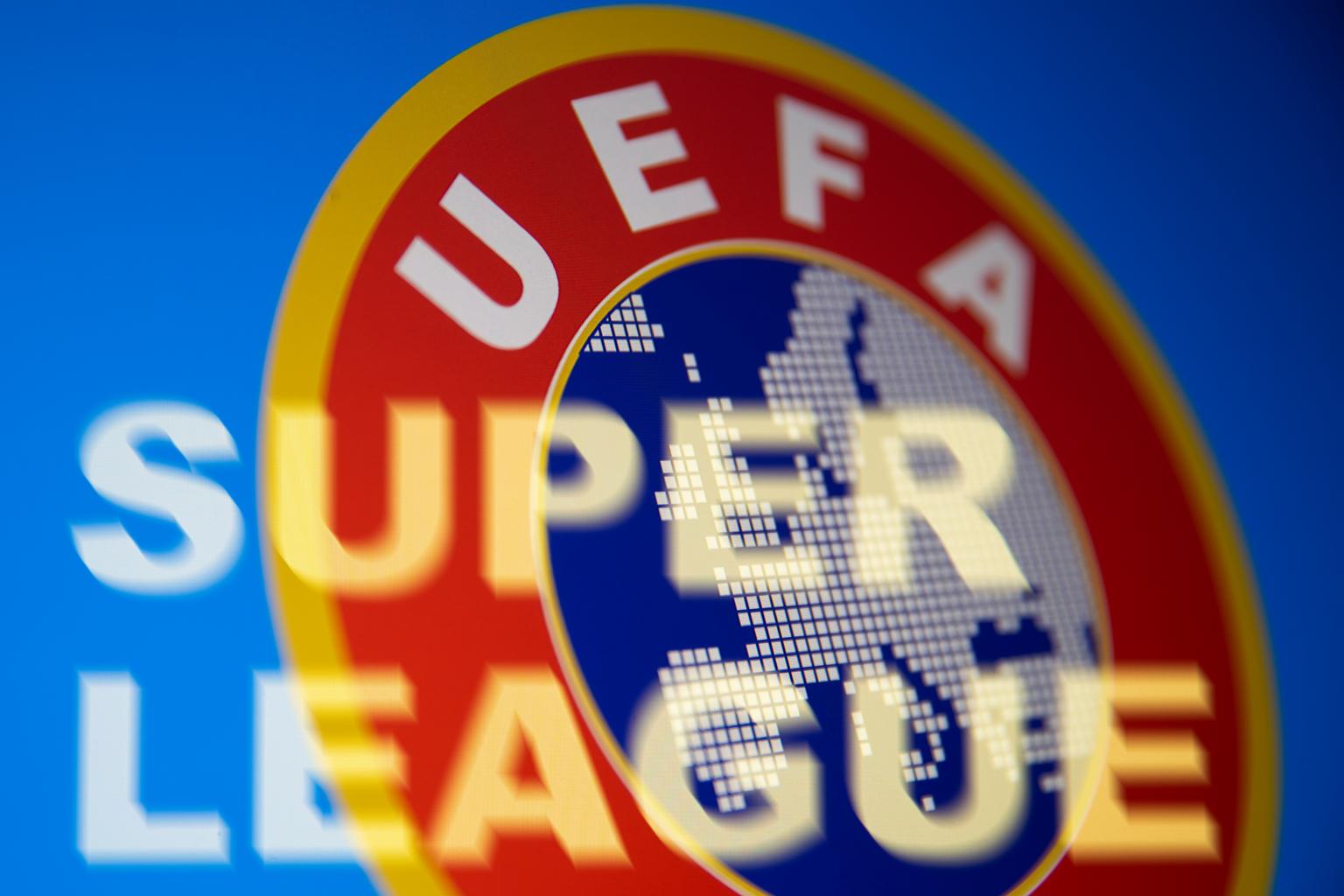Football: Uefa weighs $9.6 billion Centricus deal to stop breakaway Super League
Sign up now: Get ST's newsletters delivered to your inbox

Uefa is working with Centricus on a plan to fund a new-look Uefa Champions League tournament.
PHOTO: REUTERS
Follow topic:
LONDON (BLOOMBERG) - Uefa is in discussions with Centricus Asset Management over a €6 billion (S$9.6 billion) financing package to overhaul its flagship football tournament and stop plans for a new breakaway Super League, according to people familiar with the matter.
The Switzerland-based sporting body is working with Centricus on a plan to fund a new-look Uefa Champions League tournament, the people said, asking not to be identified discussing confidential information.
Negotiations are ongoing and there is no certainty that the Union of European Football Associations and London-based Centricus will reach an agreement, according to the people. A representative for Centricus declined to comment, while a spokesman for Uefa did not immediately respond to a request for comment.
It comes as Uefa prepares to battle with a new Super League that could mark the biggest upheaval of European football since the 1950s and end the Champions League's decades-long reign as the world's premier club contest.
A group of the world's richest football clubs, including Manchester United and Real Madrid, announced plans for the breakaway league starting in August in a statement early on Monday (April 19).
The marquee names - six from England, three from Italy and three from Spain have signed up so far - would play each other midweek as an alternative to the Uefa tournament. In addition to what will be 15 permanent teams, another five will qualify each year for the Super League.
The €4 billion plan, which is being bankrolled by JPMorgan Chase & Co, has already drawn heavy criticism from domestic leagues and politicians. Uefa has said it could ban Super League team players from national teams that take part in the European Championship and World Cup.
Centricus has been in talks with Uefa for a number of months regarding financing, a person familiar with the matter said. The investment firm had discussed an initial package of about €4.2 billion, which was raised to €6 billion following the rival Super League proposal, the person said.
Centricus, which oversees about US$30 billion (S$39.8 billion) in assets, according to its website, is well connected to large, wealthy institutions in the Middle East and Asia, and helped SoftBank Group raise US$100 billion for its massive Vision Fund.
The firm was started in 2016 by Mr Nizar Al-Bassam, a former investment banker at Deutsche Bank, and former Goldman Sachs Group partner Dalinc Ariburnu.
Despite running a small team from London, Centricus has become known for a string of opportunistic deals. It is currently working with Indian commodities tycoon Anil Agarwal on a plan to invest US$10 billion in turnaround opportunities in India, and last year made a last-minute pitch to buy TikTok's operations in several countries for US$20 billion. In 2019, it made a foray into the high-end hotel and resorts sector and bought the iconic Capri Palace Hotel and Spa.
Within the sports industry, Centricus was also part of a consortium, alongside SoftBank and Fifa, to launch a brace of new football tournaments, and has held talks to invest in Swiss club FC Basel.
Proponents argue that the Super League would create a more exciting competition because the game's very top teams would play each other more often. It would also be lucrative for them, with permanent membership removing the uncertainty of the Champions League, whose teams must qualify annually or risk losing broadcasting and sponsorship revenue.
But the idea of creating a competition that removes the drama of a smaller team such as four-time champions Ajax winning the trophy, or of a bigger club having to qualify in the first place, has angered supporter groups and former players, who say it rides roughshod over the history and culture of the club game.
Even if the Super League plan is stopped by its opponents, it represents a powerful threat that could help the clubs win more concessions from Uefa. The body's plans to expand the Champions League from 32 to 36 teams and increase the number of games have irked some teams complaining the season already has too many matches.

